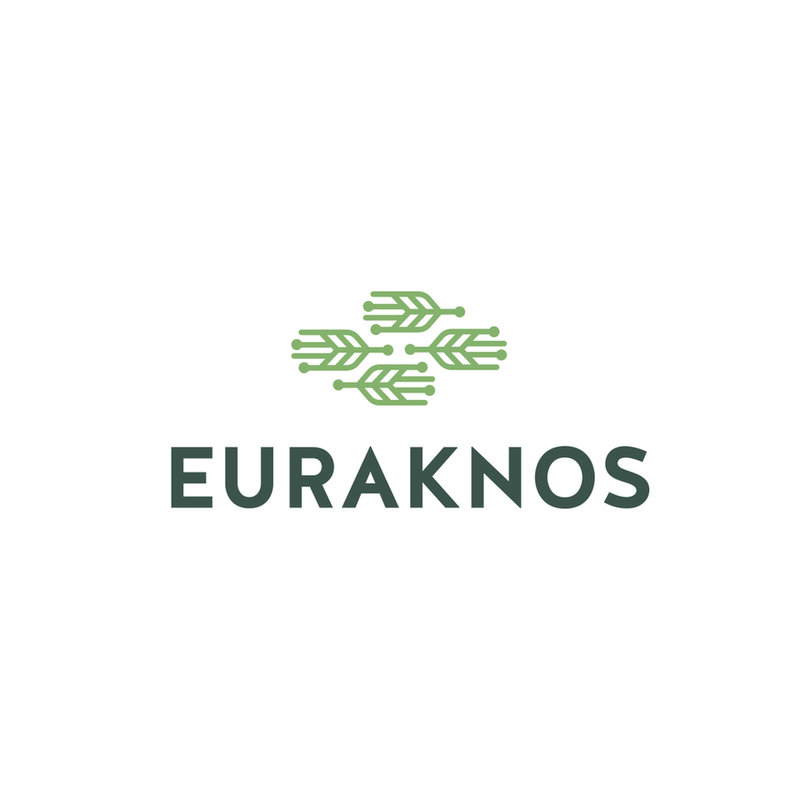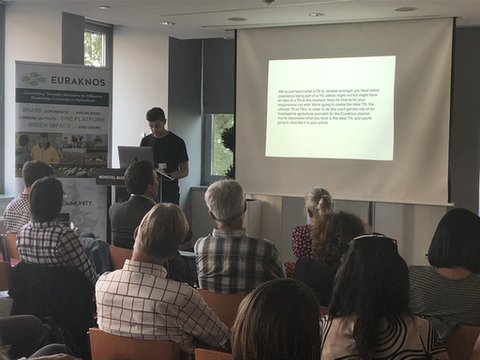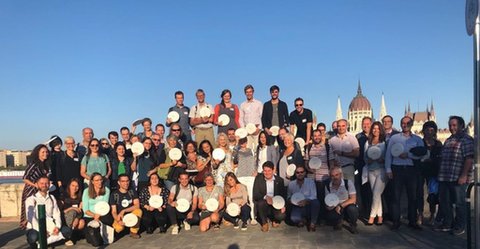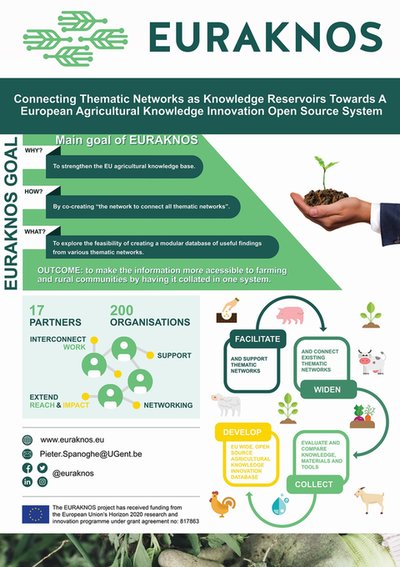
The definition of the word Synergy is ‘the interaction or cooperation of two or more organizations, substances, or other agents to produce a combined effect greater than the sum of their separate effects.’ In this chapter, we highlight the synergy between SmartAgriHubs and another Horizon2020 project. This time we invited EURAKNOS to answer a few questions about their project, how gender equality can be addressed and promoted in it, and to find out how together we can have a greater effect than on our own.
Can you describe EURAKNOS in a few sentences?
Therefore, EURAKNOS is a H2020 thematic network (TN) that aims to widen the TN community to facilitate the improved (digital) exchange of best practices between farmers, researchers and advisors from different sectors and member states. At this time 34 TN projects are running. The thematic networks are collecting, sharing and presenting practice-oriented knowledge for the farmer, forester, and advisor. We are investigating ways to achieve greater impact through dissemination of practical knowledge, data and other outputs of TNs to the user, and making them both easier to find and to understand. Therefore, we are also looking into the feasibility of creating an EU wide knowledge database for agriculture and forestry based on the outputs of TNs.
The ICT sector sees a lot more men working in it than women. According to an article from 2018 by the European Commission, only 9 % of developers and 19% of people in management positions in the ICT sector are women. Why do you think this is the case?
We also see that the ICT team within the EURAKNOS consortium consists mostly of men, although the overall gender distribution in EURAKNOS is balanced, and the project equally engages women and men. We believe that the under-representation of women in ICT roles is mainly driven by the different cultural norms that still exist in our society for males vs. females. These norms are picked up by children from the earliest ages, and we all develop unconscious biases as a result. It is good to see that there are now many initiatives to help change these norms, and we aim to be a part of this change.
From the EURAKNOS perspective, what barriers do you see for women in agri-food ICT and what do you think would help to break these barriers?
At EURAKNOS we have invested a lot of work on the translation of the needs of the ‘market’, i.e. the farmers, foresters and advisors, to identify a sound basis on which to develop an online knowledge platform that is attractive for both men and women. The skills needed to investigate how to map these end user needs, and to give directions to the ICT developers, seems to me completely gender independent.
In EURAKNOS we also conduct many consultations with farmers and foresters on the utility and user-friendliness of our virtual knowledge platform. Men and women both seem equally interested. It may be that in some countries women are less encouraged to develop skills in ICT, or are less interested due to cultural factors, but we did not experience specifically that there is a gender difference when it comes to interest. With the EURAKNOS database we work according the FAIR-principle (findable, accessible, interoperable and reusable). We strive to make the system accessible for everybody, with the specific needs and preferences of women and men equally considered.
Research highlights that investing in women is becoming more important for businesses in the food and agricultural sector, along with promoting the sector to the younger generation.
What role do women play in agriculture? How might this change in the near future?
Women play an important role in agriculture as most farms at small scale, but also sometimes at larger scale, are family businesses. It is important to keep women engaged and interested in the sector, as well as the younger generation. The agri-food ICT sector should work to improve its attractiveness towards and recruitment of women. This will help to diversify, revitalize and ultimately improve agriculture in this critical decade.
How can we inspire the future of women and diversity in our industry?
In our user groups we have had some inspiring women active in forestry or agricultural sectors. And of course there are also talented female advisors who can attract women to the sector. It is true that they strong women role models should be more at the forefront. Putting them in the spotlight will help to improve the visibility and the diversity in our industry.
Contact
Dr. ir. Pieter Spanoghe, Project coordinator
Info@euraknos.eu

"It is good to see that there are now many initiatives to help change the norms, and we aim to be a part of this change."

“We strive to make the system accessible for everybody, with the specific needs and preferences of women and men equally considered.”

“It is important to keep women engaged and interested in the sector, as well as the younger generation.”
Synergising
with EURAKNOS

